Sunday November 25, 2007
CAFE LATTE CHAT
IN his preamble, The Star's acting group chief editor Datuk Wong Chun Wai pointed out that power sharing in this country has been a numbers game. The Chinese now comprise only 25% of the total population compared to some 35% a decade ago. Only about 30 of the 219 parliamentary seats are still predominantly Chinese.
What are the possible impact and implications of the shrinking Chinese votes on the power-sharing model? Can the community afford a weaker representation in the ruling Barisan Nasional?
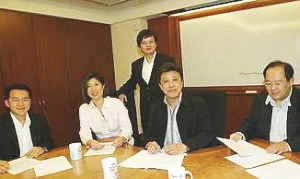 |
|
Healthy debate: The panel including (from left) Liew, Soong, Khoo, Wong and Roger airing their views during the first Cafe Latte Chat at Menara Star recently.
|
How can the Chinese community rediscover their political influence in the governance process?
Are the grouses and sentiments real and legitimate?
What is the way forward?
The participants in this session are corporate lawyer Roger Tan, Insap research director Fui K. Soong, DAP election strategy advisor Liew Chin Tong, Sedar Institute director Gavin Khoo Khay Peng and The Star's associate editor Joceline Tan.
Below are excerpts from the discussion chaired by Wong.
Urban And Restless
 |
Wong: Let's start with the perception that urban voters especially the Chinese are in an anti-establishment mood.
Joceline: There is clearly unhappiness mainly among the intelligentsia, people who read newspapers, watch TV, (and) follow current events about a variety of issues. They are also mainly urban-based and middle class so areas like the Klang Valley and also Penang would be areas to watch. But sometimes as a reporter, I get the sense that when people tell me something, like the Chinese are unhappy, I tell someone else, and he or she tells others and after a week, it comes back to me. So you wonder how much is hearsay and how much is real. We don't have a polling system to provide us with more scientific feedback.
Soong: Much like marketing, understanding voters, how they behave – these are all behavioural patterns. They are important factors for all political parties including the MCA. But talking about communal politics, this is where a lot of people fail to understand the issue of ethnicity. The West is beginning to reject this issue in politics. But we can't run away from the issue of multi-ethnicity in Malaysia.
Where Malays are concerned, religion is one line that you don't touch. For the Chinese, it's language. In Sabah and Sarawak, when we talk about the indigenous groups, we do not refer to them just as Bumiputra because for them it's about tribal identity. But from our studies we find we can't take away how Malaysians view themselves in terms of ethnicity. But they are proud of being Malaysians and, as I always say, traffic lights don't just break down just for the Chinese or if the drains are stuck, it affects everyone.
Liew: As of April 15, there were four million Malays still unregistered as voters. For now, the Government can still segregate urban and rural votes on the assumption that urban areas are still Chinese dominated and that most Malays vote in their kampung. But DAP would not only have to appeal to the Chinese if the four million urban Malays were to enter the electoral roll. Maybe it can transform itself into a party that champions all urban Malaysians. Umno's Malay hegemony is because it controls most of the seats in the rural areas. Once you have Malays who live and work in urban areas, the issues will change; the articulation of ideas would be different.
Pendulum Votes
Wong: What are your views on the urban Chinese vote swing in the next elections?
Liew: There is a large number of swing voters in urban politics, even in Australia and the United States. In Malaysia, maybe DAP will get more votes this time around, but not necessarily more seats. I don't think we will win many more seats in the next election because of the way the electoral system structures the seats. Besides, there aren’t many urban seats available. From what we hear, we may get an increase in popular votes but it would not be as great as in 1986. But even in 1990, the dynamics were different: there were hopes for a change of government, at least for a majority of Chinese. You don't see it this time around because Umno is so strong.
Roger: A Chinese vote swing in favour of DAP would be quite a disaster for the community's representation in government where the MCA is concerned. The Chinese in the rural and urban areas have a different way of thinking. They are still inclined towards the MCA because the majority are grateful for the new villages created during the Emergency.
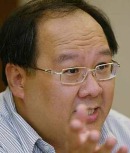 |
The MCA grassroots and connectivity are stronger when dealing with rural Chinese who generally still think along Chinese representation.
This is not the case in the urban areas where issues and educational backgrounds are different. They think in terms of national interest, national issues and also the importance of a strong opposition. So we see a lot of Chinese turning towards the DAP and other opposition parties.
But when you talk about shrinking Chinese votes and representation in the government, the Chinese-based parties should unite.
This may be a near impossibility, but there was talk of MCA and Gerakan getting together in the last elections. I thought that was a good idea.
Soong: Once in a while – I don't know why – the Chinese community has this self-destruct mechanism. But the machinery, the infrastructure, is there whenever there are issues in rural areas. In urban areas, however, I believe MCA has not handled urban issues or maybe even urban Chinese issues in a way that meets their needs, which are very different. Their outreach, particularly to the professional groups, has been difficult because of the economic advances. There has to be more direct involvement with the population, to make them see that the very same economic advances were possible because of the stability provided by the Barisan framework.
Wong: When people have a problem they go to (Datuk) Michael Chong but some feel MCA is not “shouting” enough and they use DAP for that. They want the best of both worlds, so they vote DAP for Parliament and Barisan for state. Is this a Chinese dilemma?
Soong: If everyone thought that way, it would be koyak (finish) for us. I mean it's a selfish thought because it's as if they are saying they are interested only in the progress of their kawasan while hoping that others would vote the opposition into parliament for a voice.
Khoo: We have to look at the psyche of political parties. Gerakan, for example, has the same rhetoric chant as MCA – it does not want open confrontation. It keeps saying that we do things quietly; we serve the society and community in our own way by cooperating with the government. They believe in closed-door negotiations.
About the inability to connect with urban voters, it's not so much about urban or rural voters but more of the generation gap, the inability to connect with the new generation of Chinese Malaysians. Failure to integrate comes from two main reasons. One is that race-based political parties are still working at the post independence mindset. At that time, it was necessary for race-based parties to be formed.
These political parties fail to realise that there must be an evolutionary process. There should be a timeframe to work together and integrate so that a real Malaysian political party can emerge. The second reason is that political parties claim to represent certain communities by their names and, for that matter, Gerakan has also become very “Chinese-centric” because of this.
Roger: I would equate the relationship of MCA, Umno and MIC as a marriage of 50 years. So imagine that in this married situation, if Umno and MCA continued to shout at each other, the marriage would be broken. But there are a lot of Chinese who would love MCA to be more vocal and raise issues in a more open way so that MCA is seen as a party that will not be bullied.
But once we do that, we are going to have a reaction. If you look at our 50-year history, there have been instances where MCA has spoken up and each time, there was strong reaction from Umno.
Chinese Votes Crucial In Malay Areas
Wong: When the Chinese supported the opposition in 1969, there was a loss of representation in government. They know they can never be “king” but they can be the king-maker in close-fought seats. Given the shrinking Chinese population, would that mean they would face less and less political clout?
Liew: I prefer the analogy of the 1990 election when the majority of Chinese voted opposition and this prompted the government to announce Vision 2020 four months after the elections. It was the recipe to address Chinese discontent and because they knew the Malay ground was very weak at that time. The Chinese were the king-maker in 1990, so they decided to sustain their support by addressing the issues.
MCA will not face serious consequences in the next elections because half of their seats are Malay-majority and Umno is relatively strong at the moment. In addition, many urban voters face a dilemma in the sense that services and amenities are linked to patronage. Many Chinese Malaysians feel it's their right.
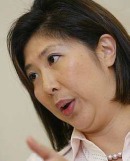 |
Soong: About 65% of Umno seats are multi-racial seats. When the candidate or constituency is dicey, the Chinese tend to vote for the opposition. They are leveraging against each other.
Roger: From my observation, if Umno and PAS vie for a seat, the Chinese would vote for Umno. As for those seats that are for MCA and DAP, the Malays go for MCA. So it's not quite correct to say that MCA relies on Malay votes in order to survive. The Chinese were the king-maker when there was trouble in Umno in 1999.
Wong: In a contest between two Chinese parties, how would the DAP win the Malay vote?
Liew: The press is restricted and DAP has no free access to mainstream media. It is difficult for the opposition to preach the national message. For the Malays, DAP is a Chinese chauvinist party. For the Chinese, PAS is given the same view. There's no chance for DAP to make a national conciliatory step. We are forced to go on the ground and that's challenging.
In addition, the electoral system is structured in such a way that it gives Barisan the advantage. As such PAS has won in purely Malay seats and DAP, unfortunately, has also won only in purely Chinese seats.
Khoo: It's simplistic to think that anyone can just form political parties to replace MCA, Gerakan or even DAP because history has shown that parties such as Parti Negara and Pekemas have not achieved any effect. The multi-racial system is inevitably what our system must include and there must be evolution.
We cannot just base it on the post-independence model and say we are going to use it for the next 50 years. If the dominant party tells you we will still be using the same model in 2057, then something is wrong. That's why I think it's very pertinent for political parties within the system to see what they can do to influence the dominant partner to change the system.
Roger: But in the urban areas, the Malays would still vote for Umno simply because Umno is seen as the protector of Malay rights and the Constitution. Also, many Malays vote for them out of gratitude for what they have done.
Urban Voice
Liew: About half of the Malay electorate voted PAS and Keadilan in 1990, so for Malays not to vote for Umno is possible. But Abdullah is still very strong and seen as a champion of the Malays. Things might change in the years ahead because we may no longer assume that Chinese are urban and Malays are rural, as more Malays move to urban areas.
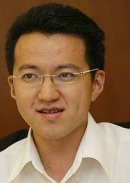 |
The current administration has not addressed this issue and the disappointment will show in the next election. But there is no way Umno will change unless and until they have to face the swing voters in urban areas. When it has to face younger Malays who have different ideas about the world, then it would have to adapt.
Joceline: The critical group in the next elections would be the urban voters, a large proportion of them being Chinese. Their access to information, the media and the Internet shapes their worldview about politics, democracy, or what is due to them. They see things differently from those outside the urban centres.
Any party that serves this urban grouping will have to come around to their way of thinking and to address the issues. Even Umno will face a similar situation as urban Malays grow in size. They can still raise the keris and it works for the rural crowd but they'll have to start rethinking the urban vote because there's going to be a critical mass of urban voters.
Khoo: Many issues cut across racial lines in urban areas. The government focuses too much on politics, too little on governance. People want this to be addressed – imbalances, abuses, corruption and poor public delivery system. They're also concerned about the inability of the government to control economic opportunities, which lead to escalating costs. When high prices hit the Chinese, it also hits the Malays and Indians.
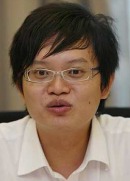 |
In his concluding remarks, Wong said: “There seems to be several streams of thought here. We agree the Chinese community is shrinking and some of us are concerned the community will lose political clout if the trend continues.
“But others take comfort that as the political sphere changes, especially in urban areas, the Chinese voters – as a minority – would remain a key factor. The urban voters, it has also been pointed out, also share many commonalities regardless of their ethnic background. Malaysians would be able to see a clearer perspective of this in the next general election. –Transcribed by PAUL CHOO and M. KRISHNAMOORTHY





